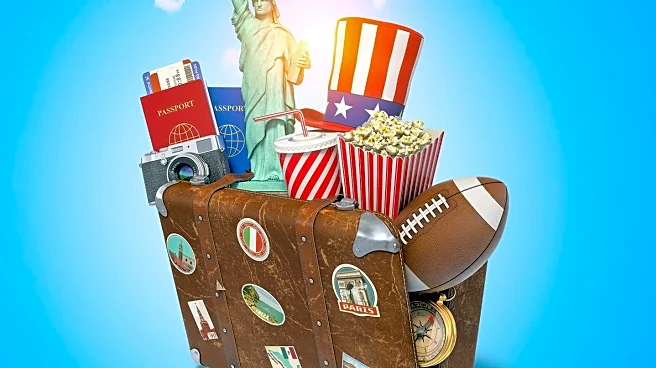What's Happening?
The term 'revenge travel' has gained traction as a descriptor for the surge in travel activity following the lifting of COVID-19 restrictions. This trend is characterized by a significant increase in travel demand
as people seek to compensate for the time and experiences lost during the pandemic. According to industry professionals, airfares, fuel costs, and the number of trips taken have all risen sharply. Data from Allianz Partners indicates a 600% increase in American travel to Europe compared to the previous year. The airline industry, however, is struggling to meet this demand due to reduced capacity and staffing shortages.
Why It's Important?
The surge in 'revenge travel' highlights the pent-up demand for travel and the economic impact of the pandemic on the travel industry. As people prioritize travel experiences, there is a shift from purchasing goods to services, which could stimulate economic recovery in the travel and hospitality sectors. However, the increased demand also poses challenges, such as higher prices and limited availability, which could affect consumer satisfaction. The industry's ability to adapt to these changes will be crucial in maintaining momentum and ensuring a sustainable recovery.
What's Next?
Travelers are advised to remain flexible and consider alternative destinations or travel times to avoid high costs and crowded conditions. Industry experts suggest that those planning trips to popular destinations like Europe should consider traveling in the off-season for better value and fewer crowds. The travel industry may need to address capacity issues and explore ways to enhance customer experience amid rising demand. Additionally, the ongoing evolution of travel trends will likely influence future industry strategies and consumer behavior.











